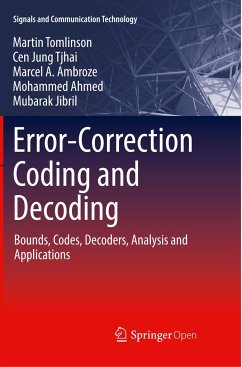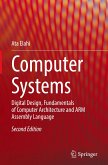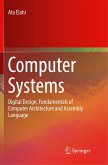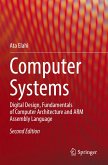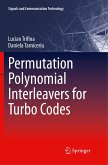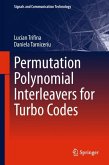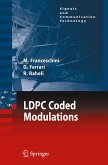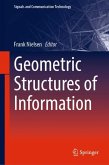This book discusses both the theory and practical applications of self-correcting data, commonly known as error-correcting codes. The applications included demonstrate the importance of these codes in a wide range of everyday technologies, from smartphones to secure communications and transactions. Written in a readily understandable style, the book presents the authors' twenty-five years of research organized into five parts:
Part I is concerned with the theoretical performance attainable by using error correcting codes to achieve communications efficiency in digital communications systems.
Part II explores the construction of error-correcting codes and explains the different families of codes and how they are designed. Techniques are described for producing the very best codes.
Part III addresses the analysis of low-density parity-check (LDPC) codes, primarily to calculate their stopping sets and low-weight codeword spectrum which determines the performance of th
ese codes.
Part IV deals with decoders designed to realize optimum performance.
Part V describes applications which include combined error correction and detection, public key cryptography using Goppa codes, correcting errors in passwords and watermarking.
This book is a valuable resource for anyone interested in error-correcting codes and their applications, ranging from non-experts to professionals at the forefront of research in their field.
This book is open access under a CC BY 4.0 license.
Part I is concerned with the theoretical performance attainable by using error correcting codes to achieve communications efficiency in digital communications systems.
Part II explores the construction of error-correcting codes and explains the different families of codes and how they are designed. Techniques are described for producing the very best codes.
Part III addresses the analysis of low-density parity-check (LDPC) codes, primarily to calculate their stopping sets and low-weight codeword spectrum which determines the performance of th
ese codes.
Part IV deals with decoders designed to realize optimum performance.
Part V describes applications which include combined error correction and detection, public key cryptography using Goppa codes, correcting errors in passwords and watermarking.
This book is a valuable resource for anyone interested in error-correcting codes and their applications, ranging from non-experts to professionals at the forefront of research in their field.
This book is open access under a CC BY 4.0 license.

